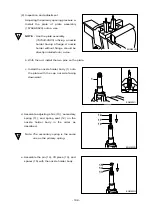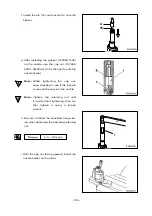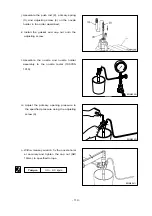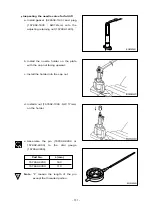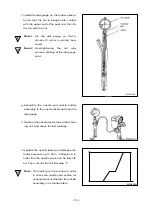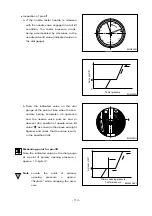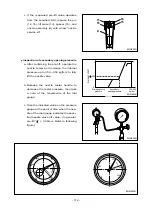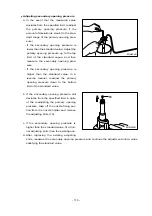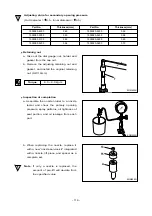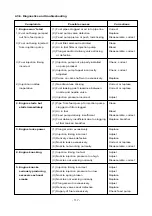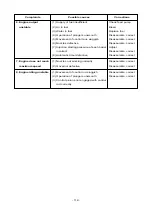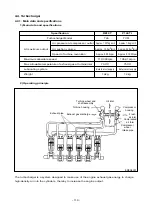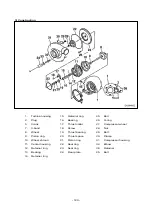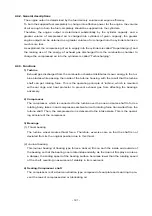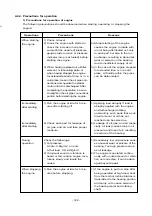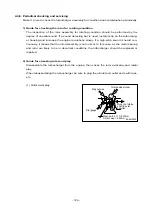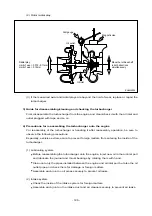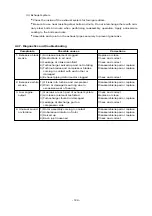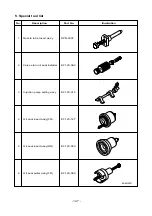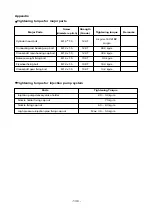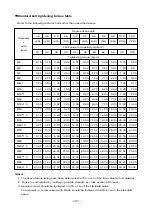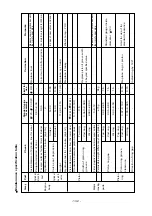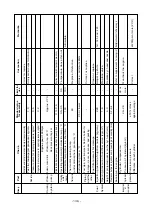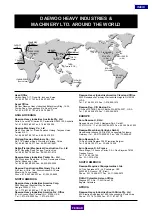
4.4.4. Precautions for operation
1) Precautions for operation of engine
The following precautions should be observed when starting, operating, or stopping the
engine:
- 122 -
Operations
Precautions
Reasons
When starting
the engine
Immediately
after starting
Immediately
after starting
During
operation
When stopping
the engine
1) Check oil level
2) Crank the engine with starter to
check the increase in oil pres-
sure(until the needle of pressure
gauge starts to move or pressure
indicator lamp is actuated) before
starting the engine.
3) When having replaced oil, oil filter
element, or lubricating parts, or
when having stopped the engine
for extended period of time, or in a
cold place, loosen the oil pipe con-
nections and operate the starter
motor until oil is discharged. After
completing the operation, be sure
to retighten the oil pipe connections
portion before starting the engine.
1) Run the engine at idle for 5 min-
utes after starting off.
2) Check each part for leakage of
oil, gas, and air, and take proper
measure.
Check the followings:
1) Oil pressure
At idle: 0.8kg/cm
2
or more
At full load: 3.0~4.8kg/cm
2
2) If unusual sound or vibration is
heard or felt, reduce engine revo-
lutions slowly and locate the
cause.
1) Run the engine at idle for 5 min-
utes before stopping.
2) Abrupt starting of the engine
causes the engine to rotate with
oil not being distributed not only
to each part but also to the tur-
bocharger, resulting in abnormal
wear or seizure on the bearing
due to insufficient supply of oil.
3) In the case of the engine stopped
for extended time or in a cold
place, oil fluidity within the pipes
can be deteriorated.
1) Applying load abruptly If load is
abruptly applied with the engine
and turbocharger rotating
unsmoothly, such parts that a suf-
ficient amount of oil has not
reached can be seized up.
2) Leakage of oil, gas, and air (espe-
cially, oil leak) causes drop in oil
pressure and loss of oil. resulting
in seizure of the bearing.
1) Excessively low oil pressure caus-
es unusual wear or seizure of the
bearing. Too high pressure caus-
es oil leakage.
2) The engine is operated continu-
ously with unusual sound or vibra-
tion not corrected, it can be dam-
aged beyond repair.
1)
I
f the engine is put to a stop after
being operated at high load, heat
from the red-hot turbine blades is
transmitted to the bearing portion
and burns oil to cause seizure of
the bearing metal and rotating
shaft.
n

